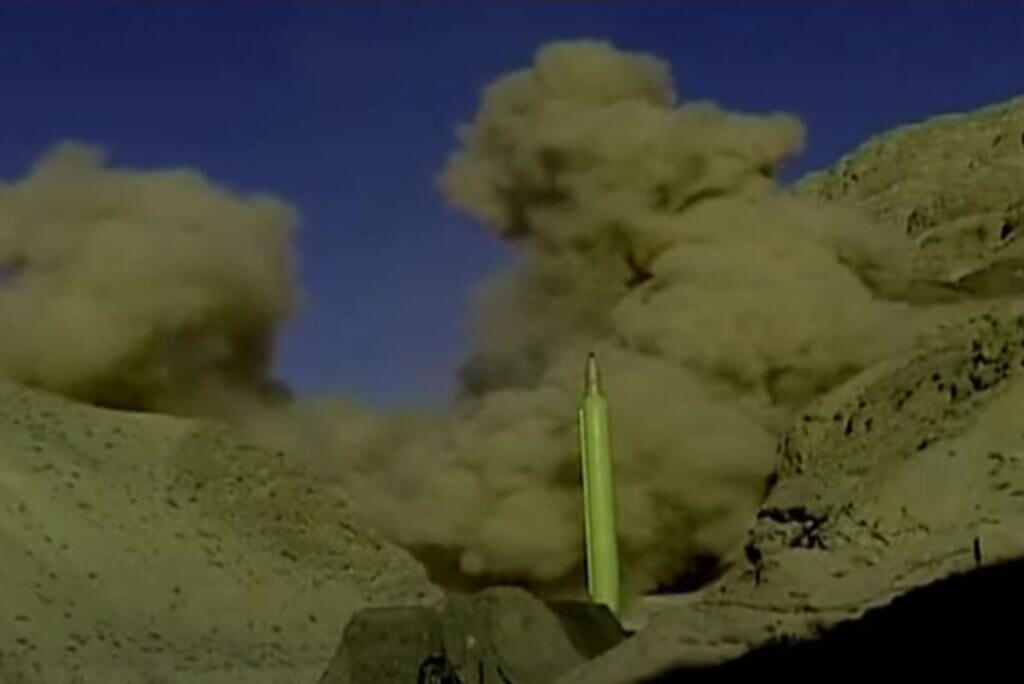The shmita (sabbatical, Jewish spelling) year ends this week. It’s been getting lots of play leading up to the beginning of the year on the first of the Jewish month of Tishrei one year ago, and throughout the year.
This has been especially the case because this shmita year coincided with two of the four blood moons. People have prophesied that the shmita year overlapping with the blood moons means that certain things will happen, and we need to be ready.
Amid the prophetic and for-profit projections, in traveling to communities throughout the U.S., and communicating over the past few years in print through my articles, emails and social media, I have had the opportunity to share elements of how we observe the shmita year in the Land of Israel—less about what’s coming prophetically and more in our day-to-day lives.
If you’ve been asleep most of the last year and don’t know what shmita means, it’s the biblically ordained sabbatical year. This means, today as then, we are obliged to leave the Land to lie fallow, not to plant new crops and not to improve the existing crops. It’s a unique mandate that can be observed only in the Land of Israel.
Given then that it’s an obligation on just over six million Jews in the Land of Israel, it’s truly awesome how much this has been talked and written about in the past, another way of exalting God albeit with the awareness that for billions of others, it’s not personally relevant. For Jews in Israel it is something that we have prepared for, lived, and will continue to observe for some time. Allow me to share some ways in which shmita is a real and practical part of the culture of the modern state of Israel today, as it was in the biblical Land of Israel, 2,000 and more years ago.
But first, one needs to understand that though the shmita year is over, it’s not really over. Stay tuned below as to why.
When one thinks about being biblically commanded to leave the Land fallow and not plant new crops, it’s an awesome affirmation of faith. In an ancient agrarian society, not to plant new wheat, barley and other crops is like putting all your chips on God. It’s incredible to think of having enough faith to not plant and to know that God will provide—especially then, but no less so now.
On an aside, I suspect that most of us don’t have enough food in our pantry or freezer to last a year. But imagine what would be if the biblical commandment was not to let the Land rest, but if it were a sabbatical year on all commerce. Would you be able to rest and not work, not produce and not have income for a full year? Would you have the faith to know that in observing a whole year of not working not to worry—that God would provide?
Shmita is only observed in the Land of Israel, and only by Jews in the Land. It’s an obligation uniquely upon us, and an opportunity uniquely for us. Though, full disclosure, it’s complicated and, after making it through my first shmita year last year, I thought of making t-shirts that said, “I survived Shmita 5768 and all I got was this lousy T-shirt.”
Of course that’s not all. As I have lived here and observed a second shmita year, I have also grown to appreciate the faith, discipline and living of biblical values that this brings. I am happy to share some specific examples which may seem complicated, even outdated, but given the opportunity to live specific biblical commandments in the Land of Israel is a privilege I have that most don’t. Not only do I not run away from it, I run to embrace it.
One might assume that not planting new crops, and not improving existing trees and other crops, that might mean not harvesting. That’s not the case. In fact, it’s considered another unique opportunity to eat from the fruit of the Land, especially during the shmita year. The produce of the shmita year has a status we call kedusha, which is sacred or sanctified. After all, when you don’t plant or prune your trees and vines, or plow your field, it is all the more so a gift from God and we treat it as such.
Indeed, Israel is covered with yellow and green signs that say, “Shmita is observed here.” These sit among acres of empty fields, brown and overgrown, but not plowed or planted. Soon they will be taken down and the fields will turn green again.
When eating the produce that does grow and is harvested appropriately, leftovers, scraps, peelings and food made with produce from the Land this year cannot just be thrown away in the garbage. Imagine God giving you a gift and you throwing any of it in the garbage. In my house, we have a separate receptacle for such shmita produce so as not to just throw it out.
In my yard, we have several fruit trees and a grape vine. It’s one of the things that gives me most pleasure about living in Israel because of the prophesy that when we return the Land will flourish. We have, and it is. But we’ve not pruned, fertilized or done anything to improve the fruit other than to water it and protect it from the birds. My grapes, apricots, cherries, lemons and pears have been awesome. After several years of getting no fruit from my lime tree, this year we have a bumper crop.
However, during the shmita year, produce of the Land is considered hefker, ownerless. So we are obliged to make a public declaration that “there are apricots and cherries available at 33 Pitum Hakitoret St.” so that anyone wants can help themselves. The bounty of the Land this year is not ours, it’s God’s gift to us all.
In the winter I went to a wine tasting in Jerusalem. We already know that just as the 2008 vintage, the 2015 vintage from any winery in the Land of Israel is considered shmita produce, with all the obligations thereof. Not that anyone would pour out a really fine Israeli cabernet from any of my favorite wineries, so that means we go out of our way not to leave a drop in our cups and certainly not to pour anything left down the sink. Albeit without pruning and fertilization, there will be some outstanding 2015 wines produced in the coming year, and we treat them with the sanctity of the shmita year, the same way we savor the balance of fruity and earthy flavors.
There was one winery present that was pouring samples but from a non-shmita year. The wine was nice, but the faith was outstanding. They poured a generous taste of their wines, but also handed out flyers explaining that they were not harvesting this year’s crop, they would be inviting the public to come pick and enjoy the hefker grapes in a few months’ time, for free, and they were also soliciting donations to sustain their year of not production. Awesome. What faith!
One arrangement in modern Israel is known as Otzar Haaretz which is a financial arrangement to subsist the farmers whose fields and crops are declared ownerless for the year. It’s like a co-op, where we pay a membership which goes to sustain the farmers, similar to the example of the winery above, but also which provides monthly coupons giving us credit of between 100-200 shekels worth of produce that is harvested there, but from which the farmers cannot benefit financially.
There’s no prohibition on importing produce, though Israeli produce is so good I can’t imagine why anyone would want to. There’s also no prohibition on using local produce grown by gentiles. They are not obliged, nor have the opportunity, to benefit from observing the shmita year practically as we do. One of the conflicts in this area, however, is the use of “Palestinian produce,” because on a nationalistic level, some think it odd and even inappropriate to pay a premium to Arab farmers who tithe to or are shaken down by terrorist groups. It’s too complicated for this article, but it’s an issue that we grapple with. However, another interesting variation of this is the prevalence of Palestinian Arabs shopping in Israeli grocery stores and buying tomatoes, cucumbers, watermelon or anything else because the quality is better and prices are as well. But they are not obliged to, or aware of, the sanctity of the produce during the shmita year, so they would throw away leftovers in the garbage, which is something we don’t do and consider inappropriate.
Why is the shmita year over, but not really? Because for years to come, we will be using and enjoying shmita produce whether wheat baked into a frozen pizza crust, canned pickles, jars of tomato sauce, apricot preserves or a 2015 vintage wine. Living in the Land, we take the obligations and opportunities seriously.
Shmita is a complexity that most cannot comprehend, but beyond the prophetic projections, here it’s just our way of life.
Please feel free to be in touch for more information. This just scratches the surface. Also, I’d love your feedback; I have been asked about ways to enable people outside the Land to participate in the opportunities of the 5782 Shmita year seven years from now.
Jonathan Feldstein was born and educated in the U.S. and immigrated to Israel in 2004. He is married and the father of six. Throughout his life and career, he has been blessed by the calling to fellowship with Christian supporters of Israel and shares experiences of living as an Orthodox Jew in Israel. He writes a regular column for cn.mycharisma.com‘s Standing With Israel.
See an error in this article?
To contact us or to submit an article






















